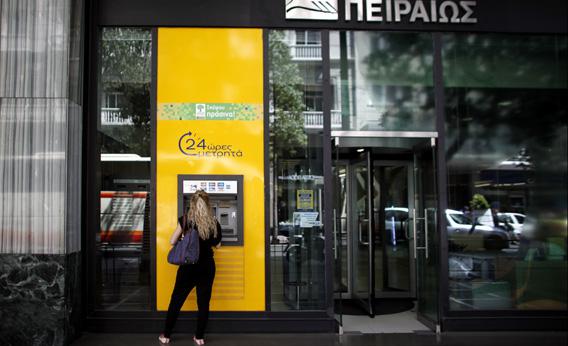All eyes are now on the possibility of a Greek exit from the eurozone. Indeed, it even has its own ridiculous portmanteau word—Grexit. Everyone from foreign financial institutions to the IMF is preparing for it, and the German government is telling anyone who’ll listen that it’s conceivable. So, is it really going to happen? Perhaps. And planning is prudent, certainly. But a short-term departure is much less likely than the hype would lead you to believe. Everyone has big incentives to bluff right now, but if Greece does end up leaving the euro it’ll happen later as part of a broader and more comprehensive split.
The key player in this phase of the drama is Alexis Tsipras, the 37-year-old leader of Syriza, the Coalition of the Radical Left. Syriza is, as the name suggests, a coalition built around Synaspismós and a few smaller left-wing parties. Synaspismós is, in turn, the descendant of the more moderate wing of the Greek Communist Party, which fell apart in 1991. In its various incarnations, the party has long been a fringe player in Greek politics. In the 1996 parliamentary elections, Synaspismós got 5.12 percent of the vote and elected 10 MPs. As recently as the 2009 elections, they got 4.6 percent of the vote running as Syriza and ended up with 13 MPs. But in the elections last week, they surged, securing 17 percent of the vote—better than Pasok, Greece’s mainstream social democratic party—and electing 52 MPs.
The result of Syriza’s surge was that even a grand coalition between Pasok and New Democracy, the main right-wing party, wouldn’t create a majority in parliament. In order to proceed with the terms of the bailout and austerity agreement reached the last time a Greek debt crisis was in the headlines, Tsipras would need to agree.
But he refused. His party campaigned on a platform that’s pro-European and pro-eurozone membership but opposed to the terms of the deal struck by the previous government. By refusing to join a grand coalition, Tsipras is forcing new elections to be held and all polling shows his party is going to do even better next time around.
That is what’s led to the surging speculation that Greece’s days as a euro member are numbered. The Germans and others insist that no renegotiation of the terms is possible, so if Tsipras wins and won’t play ball, Greece will have to go.
Nevertheless, there’s an excellent chance that everyone is bluffing. Tsipras is a bit like a person who’s wandered into a rich guy’s living room and is threatening to shoot himself in the head unless the rich guy hands over some cash. It’s not a very credible threat.
There’s a case to be made that Greece would be better off without the euro, but it’s much less persuasive than the case that Spain or other vulnerable economies would be. That’s because even if it defaulted on its debts, Greece would still be facing a budget deficit that, absent bailout money, it has no real way of closing. So austerity measures would still be needed, except without the benefit of a functioning banking system. It’s also not clear how much Greek exports would be boosted by currency devaluation, since their largest export industry is shipping, which is not very sensitive to currency dynamics.
On the other hand, it might make sense for the rich guy to pay up. Brains splattered all over the carpet and furniture might be more expensive to clean than just paying the guy to go away.
In the case of the eurozone, the carpet and furniture are Portugal, Ireland, and Spain. Once it becomes clear that an exit from the euro is a real possibility, the odds are that people who hold bank accounts in those countries will want to take their money out. Nobody wants their 10,000-euro nest egg to be suddenly turned into 10,000 much-less-valuable new escudos. If you keep the cash in your desk drawer, you’ll be spared the possibility of conversion. Even better, if you manage to move the money into a German bank account, you may even make money as the euro appreciates with the weaker states gone. But bank runs in these countries will force national governments to undertake new bank bailouts, which will worsen their overall sovereign debt. That, in turn, would require even more bailouts from northern Europe. Spain, which thus far hasn’t been bailed out, would be particularly expensive.
The point is that while Germany would obviously prefer not to offer Greece more generous terms, there’s good reason to think that they’d be willing to do it. By the same token, it makes sense for Greece to ask.
In essence, the situation is fertile territory for bluffing. Tsipras pretends it makes sense for Greece to demand a better deal, and Angela Merkel pretends it makes sense to let Germany walk away from the euro. This game of chicken might end up badly, but the frantic press reports are mostly a reflection of the bluffs not the actual likelihood of Greece leaving. The most plausible scenario is the most reasonable one. Syriza gains seats in the next election, forms a coalition, wrings a slightly more generous deal out of the European Union, and the can gets kicked further down the road. That’s not to say Greece will be in the euro forever. But if it does leave, it’ll most likely be after a much larger crisis. If Spain or Italy—which right now aren’t getting German money and which Germany couldn’t afford to bail out—decide to pull the plug and regain monetary sovereignty, then Germany will cut Greece lose. But as long as the rest of the eurozone is holding together, it makes more sense for Germany to just pay what it costs to keep Greece in.
